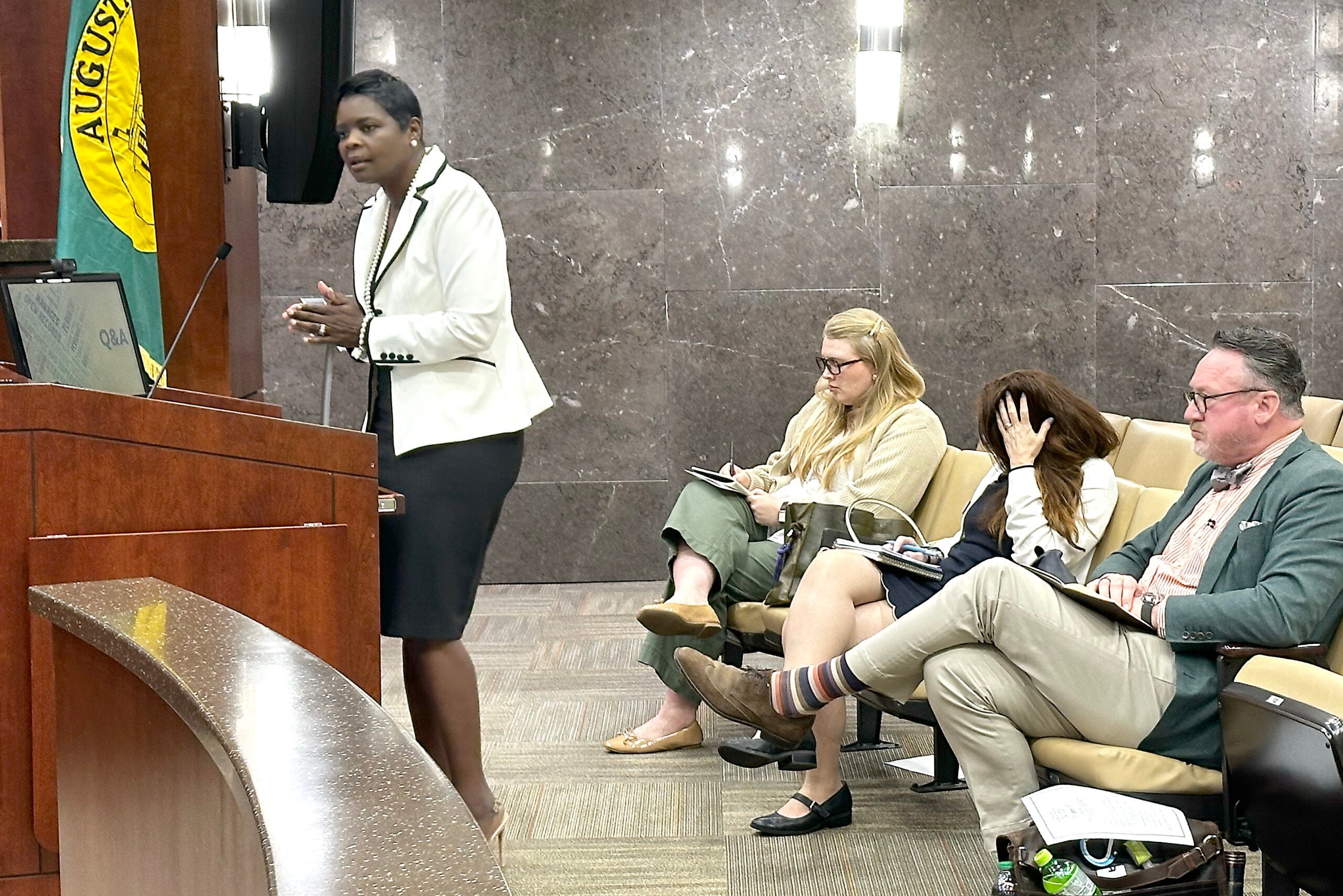Augusta’s charter review committee shifted course Thursday, voting to amend its bylaws to meet every other Thursday, with an eye toward having a document ready for voters in May 2026.
This revises a previous decision to meet two Thursdays a month. In addition, a May vote was unlikely under the Augusta Commission’s enabling resolution, which gave the group till March 31, 2026, to complete its work.
Committee Chair Marcie Wilhelmi said the schedule change was needed to “put it out in time for the election designated for local issues.” The May election includes the race for mayor and five commission seats. She called December “a worthy goal.”
In earlier committee correspondence, obtained Thursday by The Augusta Press, she said the committee was under “heavy pressure” from the legislature and city officials to finish by the end of December.
Members differ on December goal
Secretary Angela Bakos said the December target was “putting undue pressure on everybody,” adding the group was recommending “very important changes” that need time.
“I don’t like the legislature or whoever it was putting pressure on us to make it faster,” she said.
Rex Facer of the Carl Vinson Institute of Government said December was “a tough month” for University of Georgia employees and that Vinson staff would need 4–8 weeks to draft the revisions.
“I think that the end of the year is going to be pushing it,” member Lee Powell said. “We are just skimming the surface right now.”
Member Steve Foushee supported the faster timeline: “I’d love to think it’s possible to try to accomplish our chair’s objective for the election, so let’s try.”
Member Roderick Pearson said “I’m afraid we’re never going to get where we need to be,” citing his 30-year wait for progress.
Vinson Institute Unsure of timeline
Vinson Institute representatives declined to say how long other cities took to revise charters. “We don’t comment on anything. We’re here for them,” said Vinson attorney Lori Brill. Facer said he didn’t know, having been at the institute only three months.
Meetings moved to every other Thursday
Bakos requested public comment before the vote on meeting dates, but Vice Chair Tanya Barnhill Turnley said, “I’m confused as to why we need to have public comment as to when we’re going to meet.”
A motion by Virginia Cody to retain the original schedule and allow public comments at meetings failed 5–6. Turnley’s motion — to meet every other Thursday and hold public hearings “as necessary” — passed 7–4, with McCorn, Bakos, Cody, and Wimberly opposed.
Plans for public comment discussed
Bakos’ motion to begin meetings with public comment passed 10–1, with Powell voting no. The committee also discussed drafting rules for public comment.
Wilhelmi said the goal was to model the Augusta Commission’s process. According to Commission Clerk Lena Bonner, under that process speakers must submit requests by 9 a.m. Thursday before Tuesday meetings, can’t speak on the same topic within 60 days, and agendas are published after the deadline to sign up.
Hasan: Wrong document being reviewed
Former Commissioner Ben Hasan told the committee they were reviewing the wrong document. He said the actual charter — the 30-page 1995 Consolidation Act — is being overshadowed by a 166-page booklet provided by the Vinson Institute, which includes added city code.
Interim General Counsel Jim Plunkett said the charter includes the Consolidation Act plus additions “that expanded some of the provisions.”
Foushee asked Hasan who authorized the original language. Hasan named former lawmakers Charles Walker, Jack Connell, Robin Williams, and Henry Howard. Walker and Williams later served prison time.
Foushee asked if “Sen. Walker primarily” handled it, but got no reply.
Next Topic: Demographics
Wilhelmi said the next meeting module will address Augusta’s changing demographics, including “changing needs, population shifts, growth of the community,” and data from the decennial census.
“There have been marked changes in the 30 years between the consideration of both documents,” she said.











